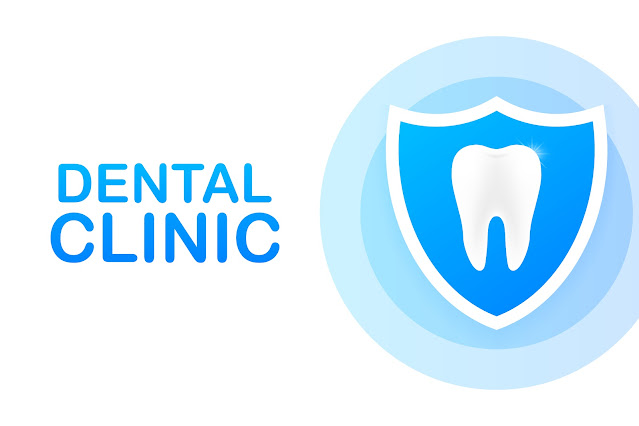Maintaining dental health is essential for overall health and well-being, but it can be challenging to navigate the world of teeth care and dental clinics. In this article, we will provide a guide to teeth care and dental clinic choice, so you can make informed decisions about your dental health.
Keywords: teeth care, dental clinic choice, dental health, informed decisions
Teeth Care
Proper teeth care is essential for maintaining dental health. This includes brushing teeth twice a day with fluoride toothpaste, flossing daily, and using mouthwash. It's also important to avoid sugary and acidic foods and drinks, which can erode tooth enamel and lead to cavities. Regular dental check-ups and cleanings are also important for preventing and identifying dental issues.
Keywords: teeth care, brushing, fluoride toothpaste, flossing, mouthwash, sugary, acidic, foods, drinks, erode, tooth enamel, cavities, dental check-ups, cleanings, preventing, identifying, dental issues
Dental Clinic Choice
Choosing the right dental clinic is essential for maintaining dental health. Look for a clinic with experienced and qualified dentists, a clean and comfortable environment, and a range of services to meet your dental needs. Consider the clinic's location and hours of operation, as well as their insurance and payment options. It's also important to read reviews from current and previous patients to gauge the level of care and service provided by the clinic.
Keywords: dental clinic choice, experienced, qualified dentists, clean, comfortable, environment, range of services, dental needs, location, hours of operation, insurance, payment options, reviews, current patients, previous patients, level of care, service
When to Go to the Dental Clinic?
It's important to visit the dental clinic regularly for check-ups and cleanings, but there are also times when you should visit the clinic for specific dental issues. If you experience tooth pain, sensitivity, or bleeding gums, you should schedule a dental appointment as soon as possible. Other signs that you should visit the dental clinic include persistent bad breath, loose teeth, or changes in the appearance of your teeth or gums.
Keywords: when to go to the dental clinic, visit regularly, check-ups, cleanings, specific dental issues, tooth pain, sensitivity, bleeding gums, dental appointment, persistent bad breath, loose teeth, changes, appearance, teeth, gums
In conclusion, maintaining dental health requires proper teeth care and choosing the right dental clinic. Practice good teeth care habits, such as brushing and flossing regularly and avoiding sugary and acidic foods and drinks. When choosing a dental clinic, look for experienced and qualified dentists, a clean and comfortable environment, and a range of services to meet your dental needs. Visit the dental clinic regularly for check-ups and cleanings, and schedule an appointment if you experience any dental issues. By following these tips, you can maintain good dental health and prevent dental issues from developing into more serious problems.
What are some common dental issues that require immediate attention?
There are several common dental issues that may require immediate attention from a dentist. These include:
Toothache: A toothache can be a sign of a cavity, gum disease, or an infection. If you experience persistent tooth pain, sensitivity, or swelling, it's important to see a dentist as soon as possible to prevent the issue from worsening.
Broken or chipped teeth: If a tooth is broken or chipped, it can be painful and also increase the risk of infection. A dentist can repair the tooth or recommend a treatment plan to prevent further damage.
Knocked-out teeth: If a tooth is knocked out due to injury, it's important to see a dentist immediately. In some cases, the tooth can be re-implanted if treatment is sought promptly.
Abscessed tooth: An abscessed tooth is a painful infection that can develop in the tooth or gums. If left untreated, it can spread to other parts of the body and cause serious health problems.
Bleeding gums: Bleeding gums may be a sign of gum disease or other dental issues. If you experience persistent bleeding, it's important to see a dentist for an evaluation.
Lost filling or crown: If a filling or crown falls out, it can cause pain and sensitivity. A dentist can replace the filling or crown to prevent further damage and discomfort.
In general, any dental issue that causes persistent pain, swelling, or bleeding should be evaluated by a dentist as soon as possible to prevent further damage and protect your dental health. It's important to see a dentist regularly for preventive care and to address any dental issues promptly to maintain good dental health.
How often should I see a dentist for preventive care?
The American Dental Association (ADA) recommends that individuals see a dentist for preventive care at least once every six months. However, the frequency of dental visits may vary depending on the individual's dental health needs and risk factors.
For individuals who have good dental health and a low risk of dental issues, a bi-annual dental visit may be sufficient. During these visits, the dentist will perform a thorough dental exam, including checking for cavities, gum disease, and other dental issues. The dentist will also clean the teeth and provide guidance on proper teeth care habits.
For individuals who have a history of dental issues or are at a higher risk of dental problems, more frequent dental visits may be necessary. This may include individuals with a history of cavities, gum disease, or other dental issues, as well as individuals who have certain medical conditions that affect dental health.
It's important to talk to your dentist about your specific dental health needs and risk factors to determine the appropriate frequency of dental visits. By staying on top of preventive care and addressing any dental issues promptly, you can maintain good dental health and prevent more serious dental problems from developing.




.jpg)



0 Comments